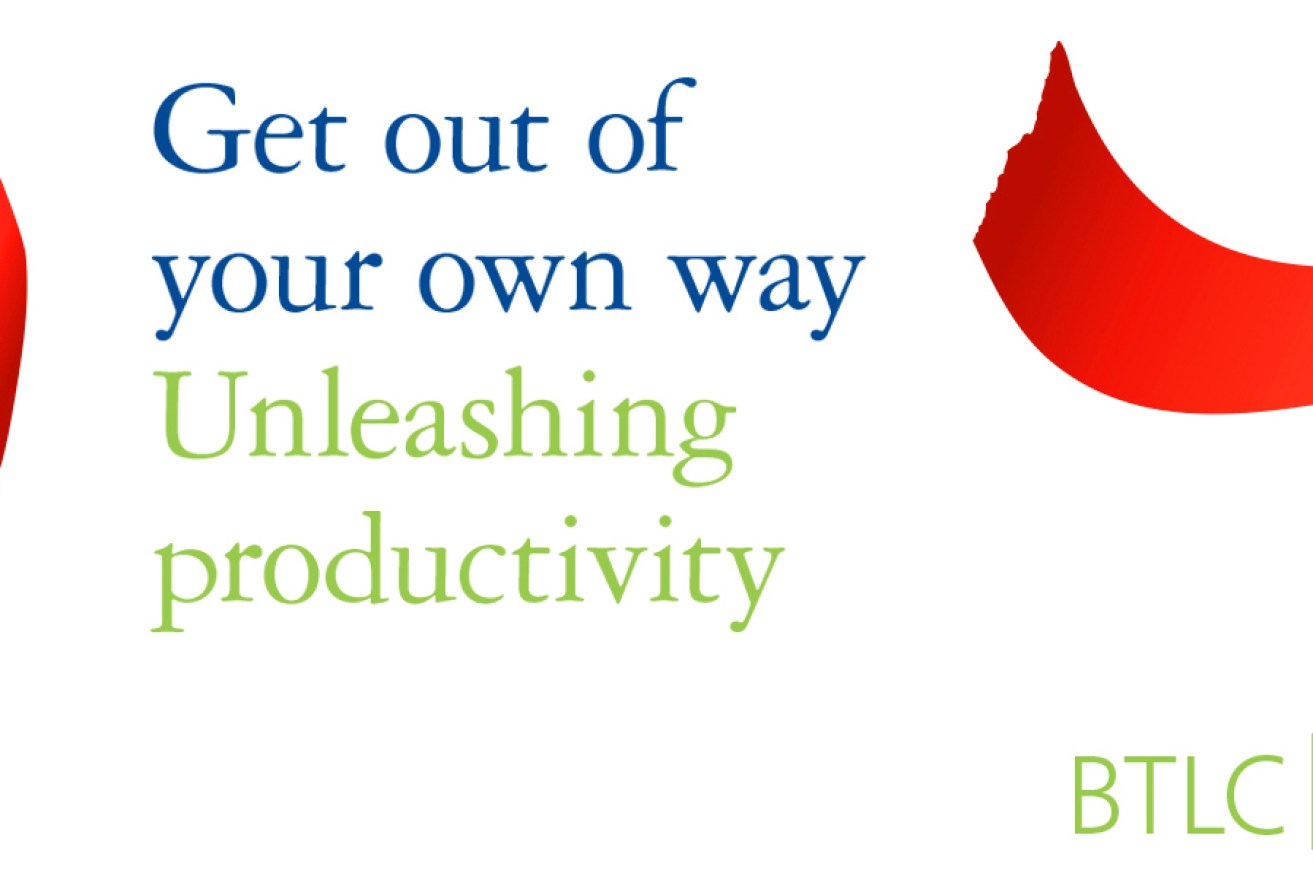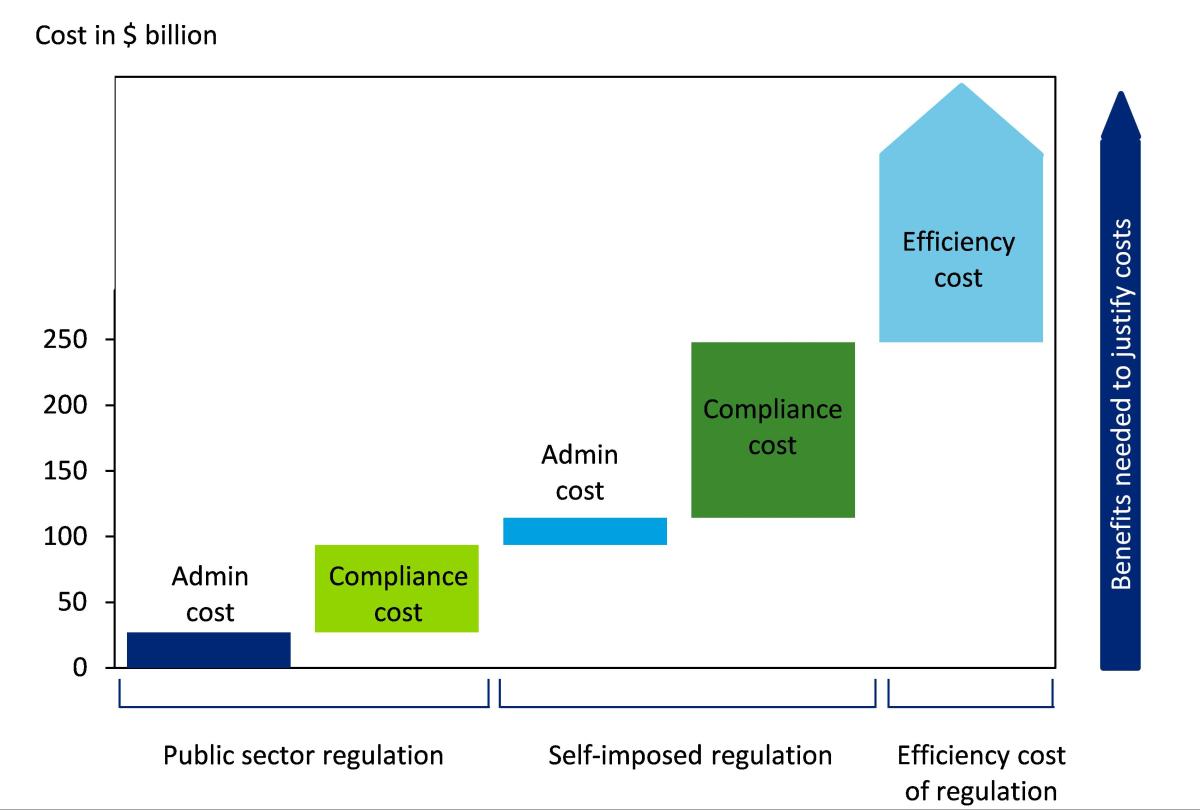
Rules eat up $250 billion a year in profit and productivity

Rules, rules, and more rules. They are essential in terms of cementing the foundations of our society, protecting the rule of law and a wealth of standards in everything from health to safety and the environment.
But Australia’s productivity is being choked by red-tape and overzealous rule making, with the combined cost of complying with public and private sector bureaucracy costing the nation hundreds of billions of dollars every year.
In a new Deloitte report – Get out of your own way: Unleashing productivity – we have calculated this cost for the first time. And the numbers are staggering:
- $250 billion – the annual burden on the national economy of rules and compliance by both governments and businesses
- $155 billion – the annual cost to administer and comply with rules the private sector imposes on itself
- $95 billion – the cost of administering and complying with public sector regulations
- 8 weeks – the time spent each year for every employee just to pay for the cost of administering and complying with rules
- 1 million people employed in ‘the compliance sector’.
A decade of prosperity certainly saw Australia’s policymakers ‘reach for a rule’, often without weighing up the costs and benefits of doing so.
And while governments can certainly do a lot to streamline our regulatory environment, there is a bigger opportunity – and need – for the private sector to slash self-imposed red tape it imposes on itself.
Many businesses have also done to themselves what they often complain about governments doing – piling on bureaucratic pounds without counting the cost.
With this in mind, the second figure above is particularly sobering – but also exciting. While the cost of self-imposed rules created by the private sector is double that associated with government regulations (who would have thought!), addressing even some of this burden can release productivity, drive innovation and deliver to the bottom line.
We surveyed corporate Australia, and the feedback shows the time required for employees to comply with self-imposed rules has become a crippling burden. Middle managers and senior executives chalk up 8.9 hours a week complying with the rules that firms set for themselves, with other staff spending 6.4 hours.
These rules cost $21 billion a year to administer, and generate a stunning $134 billion a year in compliance costs – double the matching compliance cost of public sector regulations. That brings us to that $250 billion number – the combined cost of administering and complying with public and private sector rules.
The annual cost of rules to Australian businesses and families

Where rules don’t exist, we create them. Where they already do, we make more. They overlap, they contradict, they eat our time and they weigh us down.
Our rule-makers – in both government and business – often try to achieve the unachievable. They set rules that are too prescriptive, overreact to momentary crises, let new rules overlap with existing rules, don’t listen to those most affected, don’t check if they are still needed, and don’t go back later to assess how well – or how badly – their rules are working.
So Australian businesses have bulked up, employing many people whose role is to create and enforce a whole bunch of rules and regulations. That doesn’t just mean some lawyers and accountants, it includes people in finance, IT and HR functions, as well as those in fast-growing governance and security roles.
As a result, there are already more ‘compliance workers’ across Australia than there are people working in construction, manufacturing or education. In fact, one in every 11 employed Australians now works in the compliance sector.
Our $250 billion figure is also a considerable underestimate. While difficult to quantify, economists have long agreed that the biggest burden of rules and regulations comes because an excess of rules saps incentive, enterprise and innovation across our economy.
Jody Burton, Managing Partner for Deloitte South Australia comments that “The cost of complying with self-imposed red tape across South Australian businesses is double those associated with government regulations, which is certainly placing a brake on our state’s productivity and innovation”
For some perspective, in our Positioning for prosperity: Catching the next wave report, we identified economic value of $250 billion over 20 years in Australia getting into the right growth hotspots (with gas one of our ‘Fantastic Five’).
When it comes to breaking the burden of excessive rule-making, there is no one-size-fits-all solution. The mining sector needs to approach risk, and the associated regulatory burden, in a different way if it is to rein in costs. Approaches should include:
- Trusting employees to use their initiative and judgement
- Tapping technology to streamline decision making
- Treating time as a resource that’s as valuable as capital
- Redesigning rules to eradicate overlaps and redundancies.
Addressing the weight of Australia’s government and corporate red tape is the clearest path to raising national living standards across the next decade. It is where we’ve made the biggest mistakes as a nation, but also where we can make the biggest – and most profitable – progress.
Saving just 10% of this $250 billion cost (without a net loss of the matching benefits of rules) would equal 1.6% of national income, ranking its impact with some of the largest reforms Australia has ever seen.
So there is a huge payoff to the profits of Australian businesses and the incomes of our workers if we simply get out of our own way.
Doing so won’t just unleash business productivity – it will unleash Australia and our own state’s potential.




